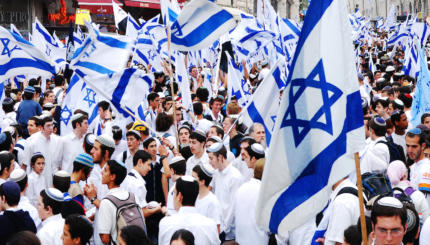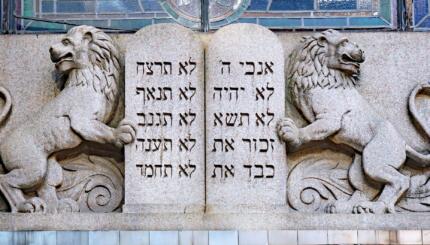Today is Yom haAtzma’ut, Israeli Independence Day. Here in Israel it is the climax of a trilogy of days of overwhelming national significance. Last week we commemorated Yom haShoah, Holocaust Memorial Day; we remembered and many of us relived the darkest days of the Jewish People. For 24 hours the whole country mourned and the whole country vowed – Never Again. Yesterday was Yom haZicaron, Memorial Day for Fallen Soldiers. We sung the praises of our heroes. We expressed our deep appreciation for their sacrifice, we remembered them, and we cried bitter tears. And today we celebrate 69 years of Jewish sovereignty.
The connection between these three days is lost on no-one; it is an integral part of our national psyche. During the holocaust we died in vain. We had no homeland and no state. Nowhere to go and no national entity to protect us. We were helpless. But our soldiers who died creating and defending our state did not die in vain. Through their deaths they bequeathed life to the Jewish nation. They fulfilled the vow of Never Again, never again shall we go like sheep to the slaughter.
Holocaust Day reminds us why we need a state of our own. Memorial Day signifies the price we have to pay for that state. Independence Day is the fruit of our suffering and our sacrifice, it is the last stage on our journey.
We must continue to remember and never forgot the price of statelessness. We must continue to teach our stories of self-sacrifice. And we must continue to savor and appreciate the sweet taste of Jewish independence and of the power that makes its possible. This is the vigilance necessary to survive and flourish in the unredeemed world in which we still live.
The gripping national narrative told by this trilogy of days is not untrue. It is part of my identity; I live it myself every day. But it is not the only truth. There is another truth as well, and it must also be heard and internalized. We need them both to thrive. One without the other can be life threatening to our people.
The other truth is that our emphasis on Yom haShoah can tend to nurture a consciousness that the world was, is, and will always be against us. Every generation and its own Nazis. Our intense focus on Yom haZicaron may tend to reinforce a sense of resignation that we may have to live by the sword for a long time to come, and there is no other way. The nations that surround us are blood thirsty and irrational; all we can do is to hunker down and defend ourselves. And our exaltation on Yom haAtzma’ut can tend to make us drunk with our own power. As if might makes right. As if the status quo in which we rule over another people is actually OK.
Indeed, these days not only reflect reality; they also create it. They not only express consciousness; they also create it. And the exclusive focus on one mode of thinking about and marking these days is part and parcel of a process that may be entrenching within our national consciousness an abiding trauma that has begun to paralyze us.
Hope for coexistence is becoming obscene. Peace is becoming a dirty word. Concern for the Palestinian people is becoming traitorous. Concern for what the occupation is doing to the soul of our people is becoming naïve. It is even becoming scandalous to admit that there is an occupation at all.
Zionism was about hope for a sea change in Jewish destiny. It was about belief in a better tomorrow. It was about faith in human progress. And then it was about doing what has to be done in order to make all this happen; it was about taking our fate into our own hands. It was about transforming the human condition and the Jewish condition within in.
But we seem to be sinking back into the exile mentality, as if nothing has changed and nothing really will ever change. Sure we have our state but we are still stuck in our fortress mentality of almost two millennia. Today we can valiantly defend ourselves but we still believe that we will always be threatened. Finally we are a majority in our own land, but we continue to live like an endangered minority.
We have not extricated ourselves from our victim mentality. We have not yet really learned how to take responsibility to shape a better reality in our relationship with the neighboring nations and with the world at large. We are far from even contemplating what it means to be a light unto the nations.
On this 69th anniversary of the beginning of our national redemption, I thank God for having been granted the opportunity to take part in the tremendous events of this generation, and I pray that we begin to learn how to redeem ourselves from the internal legacy of 2000 years of exile and persecution. I do not suggest that we abandon our old paradigm, but I do suggest that we add a new one to our repertoire. I believe that everything depends upon it.



